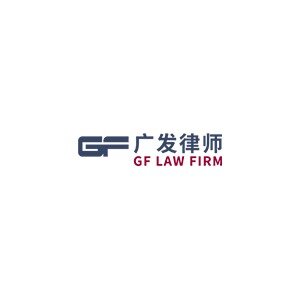Best General Litigation Lawyers in Shanghai
Share your needs with us, get contacted by law firms.
Free. Takes 2 min.
List of the best lawyers in Shanghai, China
About Litigation Law in Shanghai, China
Litigation in Shanghai, China, is a legal process for resolving disputes between parties before a court. The city is renowned for its vibrant economy and legal system, which adheres to rule of law principles. Shanghai's courts deal with a wide array of civil, commercial, and administrative cases. These courts follow guidelines from the national level but also apply specific local regulations that influence litigation proceedings. The legal framework emphasizes procedural efficiency and fairness, ensuring that disputes are resolved expeditiously and justly. Shanghai's legal professionals are equipped to navigate complexities arising from both domestic statutes and international agreements.
Why You May Need a Lawyer
There are numerous situations where individuals or businesses may require legal assistance in litigation in Shanghai. Common instances include contract disputes, intellectual property rights infringements, business mergers and acquisitions, landlord-tenant disagreements, and employment disputes. Navigating the complex legal landscape without professional guidance could be daunting and may lead to unfavorable outcomes. Engaging a lawyer helps in understanding the legal parameters, complying with intricate procedures, and effectively presenting a case. Lawyers can offer strategic advice, negotiate settlements, and represent parties in court, ensuring their clients' rights and interests are protected.
Local Laws Overview
Key aspects of local laws relevant to litigation in Shanghai include the Civil Procedure Law of the People's Republic of China, which governs civil litigation processes. Furthermore, Shanghai courts place emphasis on mediation and reconciliation at each litigation phase to resolve disputes amicably. The economic nature of Shanghai also brings the Contract Law and the Company Law to prominence, addressing issues related to business operations and commercial transactions. Intellectual property laws are also pivotal, given Shanghai's position as a hub for innovation. Additionally, the Labor Contract Law is critical for resolving disputes in employment matters.
Frequently Asked Questions
What is the first step in initiating litigation in Shanghai?
The first step is usually to file a complaint with the appropriate court, outlining the legal dispute and the relief sought. It is advisable to seek initial legal consultation to understand procedural requirements and prepare necessary documentation.
How long does it take for a lawsuit to be resolved in Shanghai?
The timeline varies based on case complexity, court workload, and parties' willingness to negotiate. Simple cases may conclude within months, while complicated disputes can take years to resolve.
Can foreign parties engage in litigation in Shanghai?
Yes, foreign individuals and entities can litigate in Shanghai courts. However, they may face additional requirements such as notarization and translation of legal documents into Chinese.
Are court judgments in Shanghai enforceable outside China?
Enforcement depends on treaties or reciprocal enforcement agreements between China and the foreign country. It's crucial for parties to seek expert legal advice on international enforcement mechanisms.
Is legal representation mandatory in Shanghai litigation?
While parties can represent themselves, engaging a qualified lawyer is highly recommended to navigate complex legal requirements and improve chances of success.
How is evidence handled in Shanghai litigation?
Evidence presentation follows the burden of proof principle where parties must substantiate their claims. Courts may require parties to present evidence promptly and may reject evidence not submitted within the stipulated timelines.
What alternatives to court litigation exist in Shanghai?
Parties may opt for mediation, arbitration, or negotiation as alternative dispute resolution methods. These options are often quicker and less formal than court proceedings.
How does the appeals process work in Shanghai?
Dissatisfied parties can file an appeal with a higher court. The appellate court reviews the lower court's decision and can uphold, reverse, or remand the case for further proceedings.
Is Shanghai known for any specific litigation practices?
Shanghai is recognized for its proactive mediation efforts and technology use in case management, which contribute to efficient dispute resolution processes.
What costs are associated with litigation in Shanghai?
Costs include court fees, attorney fees, and possible expenses for evidence collection. It's advisable for parties to discuss potential expenses with legal counsel before proceeding.
Additional Resources
To facilitate understanding and legal navigation, individuals can refer to resources such as the Shanghai Bar Association, which offers directories and legal education materials. Government entities like the Shanghai High People's Court provide insights into ongoing reforms and court procedures. Additionally, legal aid organizations and university law clinics might offer assistance to those with limited means or knowledge.
Next Steps
If you're considering legal assistance in litigation, start by researching qualified litigation lawyers or law firms in Shanghai. Initial consultations can help clarify your case and available options. Assess your budget, timeline, and desired outcome before proceeding. Prepare and organize all relevant documents to streamline the process. Being proactive in communication and adhering to legal advice will bolster your position in any legal action undertaken. Engaging local experts ensures compliance with all procedural requirements and maximizes prospects for a favorable resolution.
Lawzana helps you find the best lawyers and law firms in Shanghai through a curated and pre-screened list of qualified legal professionals. Our platform offers rankings and detailed profiles of attorneys and law firms, allowing you to compare based on practice areas, including General Litigation, experience, and client feedback.
Each profile includes a description of the firm's areas of practice, client reviews, team members and partners, year of establishment, spoken languages, office locations, contact information, social media presence, and any published articles or resources. Most firms on our platform speak English and are experienced in both local and international legal matters.
Get a quote from top-rated law firms in Shanghai, China — quickly, securely, and without unnecessary hassle.
Disclaimer:
The information provided on this page is for general informational purposes only and does not constitute legal advice. While we strive to ensure the accuracy and relevance of the content, legal information may change over time, and interpretations of the law can vary. You should always consult with a qualified legal professional for advice specific to your situation.
We disclaim all liability for actions taken or not taken based on the content of this page. If you believe any information is incorrect or outdated, please contact us, and we will review and update it where appropriate.

















